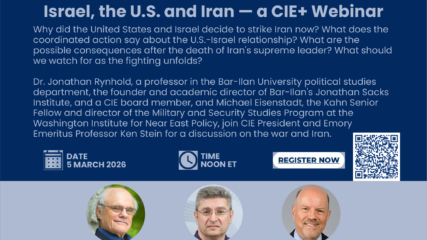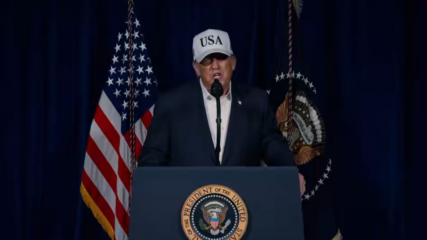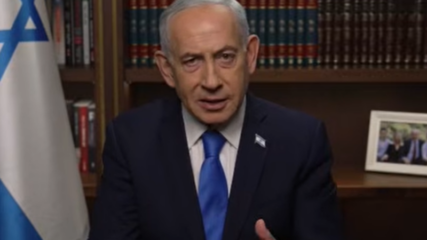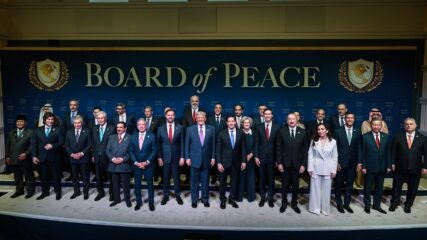Hermann Eilts played a pivotal role in representing the U.S. to Egypt and vice versa in the vital 1973-1980 period when Egypt embraced Washington and turned away from Moscow, and made peace with Israel. Eilts knew Egyptian President Sadat as well as any American official in the period. He provides rich detail and vivid insights into Sadat's often mercurial decision-making.
Latest articles from CIE

#156 Contemporary Readings, February 2026
Maya Rezak and Ken Stein, February 27, 2026 Hussain Abdul-Hussain, “Why Saudi Arabia is Turning Back to Islamism – and Against Israel,” Foundation for the Defense of Democracies, February 6, 2026. Al-Arabiya, (editorial) “The Crisis…

Israel in Context With Ken Stein: Israel, the U.S. and Iran — a CIE+ WebinarCIE+
Why did the United States and Israel decide to strike Iran on February 28? What does the coordinated action say about the U.S.-Israel relationship? What are the possible consequences after the death of Iran’s supreme…

President Trump Announces Attack on Iran, February 2026
President Donald Trump announces Operation Epic Fury, the second U.S. attack on Iran’s nuclear and ballistic missile programs in eight months, and urges the Iranian people to overthrow their Islamic regime.

Prime Minister Netanyahu Announces Strike on Iran, February 2026
Prime Minister Benjamin Netanyahu announces Operation Roaring Lion and briefly explains why Israel, with U.S. help, has attacked the nuclear and ballistic missile capabilities of Iran. He also encourages the Iranian people to topple their regime.

Board of Peace Inaugural Meeting, 2026: Hamas Disarms for Redevelopment, or Gaza Returns to War
The first meeting of the Board of Peace convened under the Trump ceasefire for Gaza offers grand plans for reconstruction and a vibrant, peaceful future for Palestinians but depends on the disarmament of Hamas.

Stein: The Causes and Consequences of the 2023-2025 Hamas-Israel War (transcript)
CIE President Ken Stein addresses what is and what is not known about why Hamas attacked October 7, 2023, why Israel was caught off guard, and what happens after the war across the region.

Controversies Uncool for Israel’s Olympic “Shul Runnings”
Israel wasn’t expecting gold, silver or bronze in the 2026 Winter Olympics, but it also wasn’t expecting controversy to mar the happy story of its first Olympic bobsledders.

Evaluating the 2023-2025 Hamas-Israel War and Its Consequences (video, 44:06)
CIE President Ken Stein briefly reviews the 2023-2025 Hamas-Israel war and examines the short- and long-term consequences.

American Officials on Zionism, Israel, the U.S.-Israeli Relationship and the Arab-Israeli Conflict, 1922-2026
Using published archives, press conferences, speeches and numerous interviews, this compilation of quotations traces how official American views on Zionism and Israel have evolved over a century.
